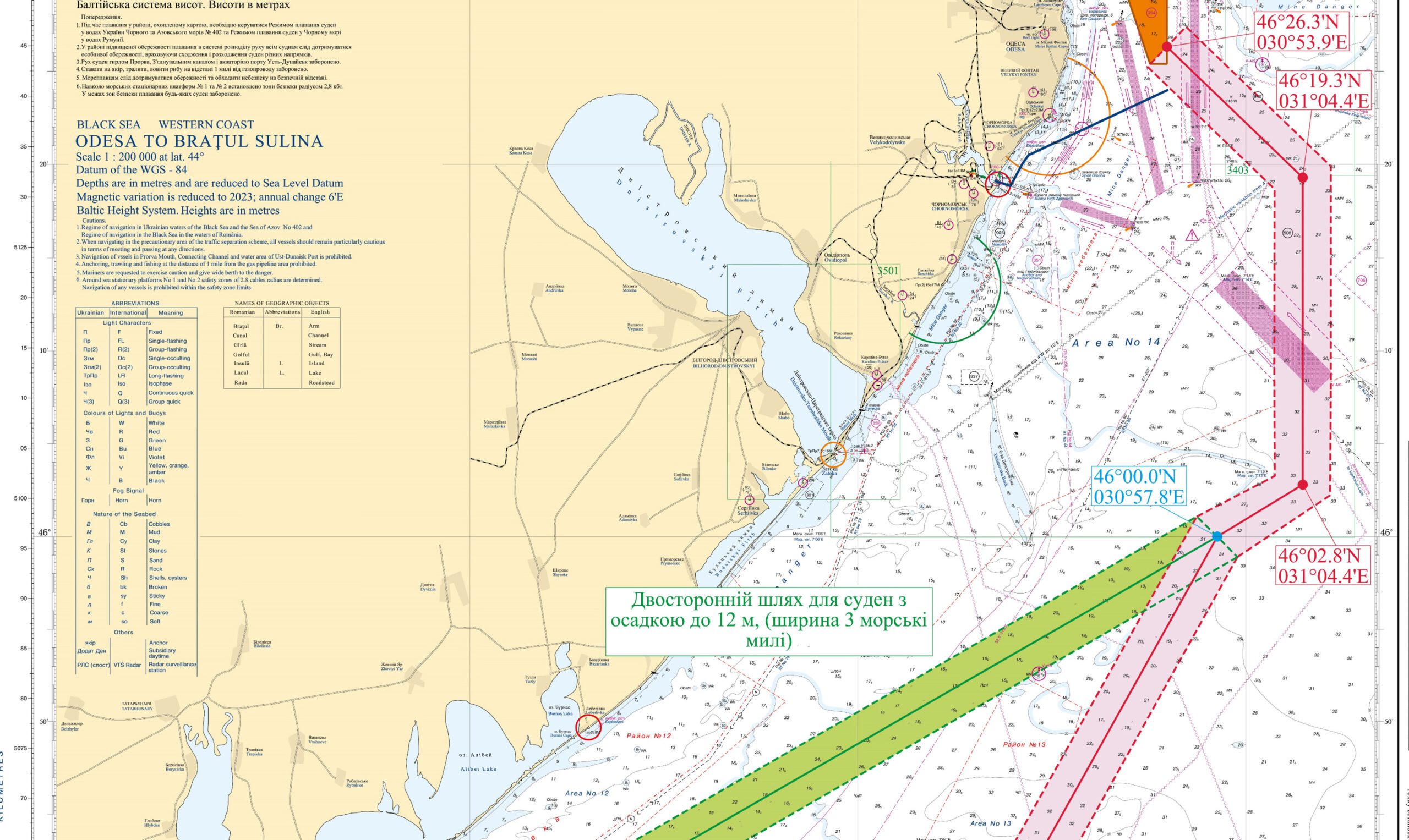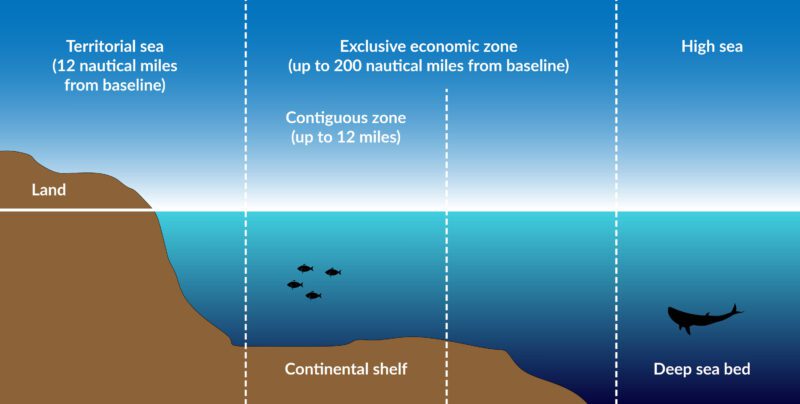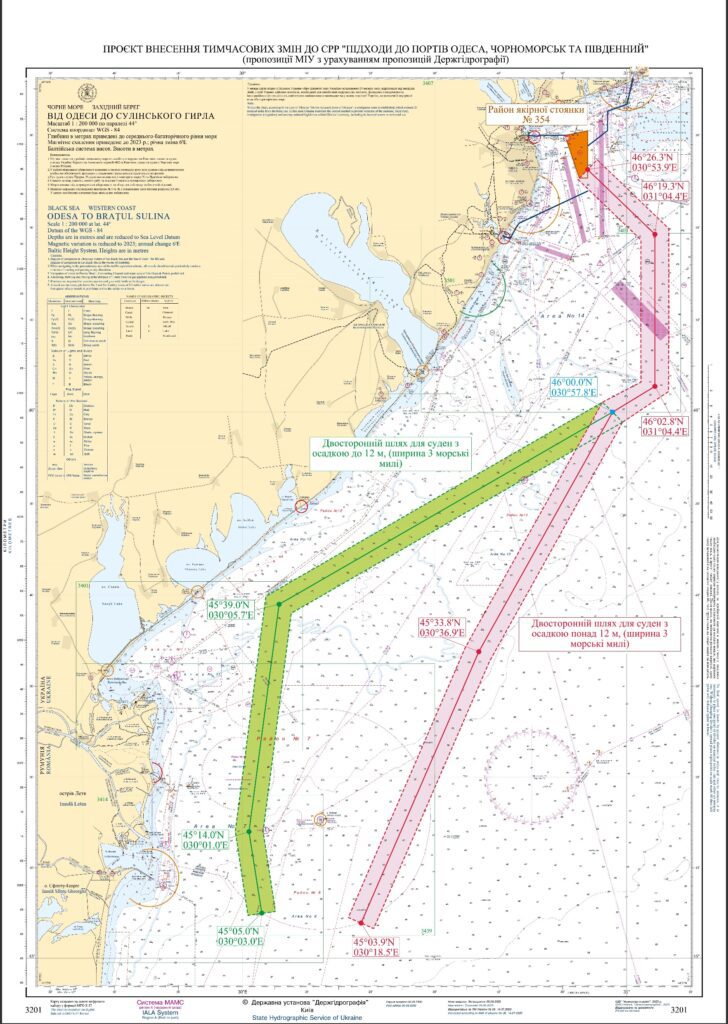UK To Remove Andrew From Role As Royal Navy Vice Admiral
LONDON, Nov 2 (Reuters) – Britain’s former prince Andrew is due to be stripped of his last remaining military position as part of King Charles’ decision to remove his brother from public...

by Captain John Konrad (gCaptain) In a recent development, Russia struck Ukrainian ports on Tuesday, a day after withdrawing from a U.N.-backed deal that allowed Kyiv to export grain from war-torn Ukraine. and today Russia announced it will consider all ships traveling to Ukraine ports as potential carriers of military cargo. This move has raised concerns about escalating food prices and potential mass starvation, as grain ships can no longer safely transit the conflict-ridden waters of the Black Sea without risk of a Russian attack. Ukraine has proposed sending ships via the territorial waters of nearby NATO nations but sources tell gCaptain that on Monday the US Navy shutdown requests to protect cargo ships that sail close to NATO shores.
How serious is this concern? “The impact is, again, the world is short on grain and fertilizer.” Cindy McCain, executive director of the United Nations’ World Food Programme, told CBS newsn a recent interview. “It affects a lot — a large portion of Africa. We’re also short on fertilizer; fertilizer is the other half of this that’s supposed to be coming out. And so without the fertilizer, in many cases, they’re not going to be able to grow crops that are as large or as productive as they could be… There’s a lot of things at stake here.”
19 Jul 2023 16:07:38 – RUSSIAN DEFENCE MINISTRY SAYS IT WILL CONSIDER ALL SHIPS TRAVELLING TO UKRAINIAN PORTS ON BLACK SEA AS POTENTIAL CARRIERS OF MILITARY CARGOES FROM 20 JULY -RIA
19 Jul 2023 16:08:17 – RUSSIAN DEFENCE MINISTRY: SAYS SOME AREAS OF THE BLACK SEA HAVE BEEN TEMPORARILY DECLARED AS DANGEROUS FOR NAVIGATION
19 Jul 2023 16:11:17 – COUNTRIES, UNDER WHICH FLAGS VESSELS ARE TRAVELLING TO UKRAINIAN PORTS ON THE BLACK SEA, WILL BE CONSIDERED AS PARTIES TO CONFLICT ON UKRAINIAN SIDE – RIA
The new plan – which sources say the US Navy rejected – proposed that grain ships sail from Ukraine to the Bosphorus via the territorial waters of NATO member nations, rather than in the International Waters they sailed on as part of the UN Black Sea Grain Initiative with Russia.
Ukraine has implemented following measures with a view to establish on a temporary basis a maritime route in the north- western part of the Black Sea: Changes were made to the existing ship’s routeing system “Approaches to the ports of Chornomorsk, Odesa and Pivdennyi”, which is being supplemented with temporary additional vessel traffic routes in the direction of the Ukrainian seaports of Chornomorsk, Odesa, Pivdennyi for ships with a draft of up to 12 meters and for ships with a draft of more than 12 meters in the sovereign waters of Ukraine, which lead to the territorial waters and the exclusive maritime economic zone of Romania, at the following coordinates:
Ukraine Letter to the IMO
This is not the first time the US Navy and NATO has backed down from protecting sovereign NATO waters. A NATO update in March of last year failed to mention that ships owned by nato member countries were getting attacked. It also did not mention reports that, early in the war, the Russian Navy boarded ships in Romanian – a NATO member – territorial waters. In those early months of the war neither the US Navy nor other NATO navies provided help to commercial ships under attack beyond a promise to “maintain vigilance” and “thoroughly document any incidents” reported to NATO.
The attacks early in the war and the possibility of Russia pulling out of the grain deal prompted various responses from international figures. Severl former 4-start Admirals including James Stavridis and James Foggo suggested last year that NATO provide naval escorts to cargo ships. They have also proposed the reflagging of ships to fly the American flag, a tactic used during the Iran-Iraq war. This is an interesting proposal because US Merchant Marine ships registered in the US and flying the American flag are guaranteed US Navy protection in all waters they are allowed to transit in.
“(The reflagging of ships during) Operation Earnest Will kept the oil flowing and took away leverage from the Iranians. My cruiser, the Valley Forge, had a successful deployment, and the mission had an important impact on global geopolitics and energy supplies,” said Stavridis last year. “As the world faces food shortages due to the illegal blockade of Ukraine by Russia, the US, and its allies should consider a similar response.”
However, the U.S. Navy has resisted this idea, with the Chief of Naval Operations arguing that sending American destroyers to the Black Sea to defend ships in international waters (or even sending in American Hospital ships to render humanitarian aid) could provoke Russia to escalate the war.
Others claim that Article 19 of the Montreux Convention prevents US warships from entering the Black Sea, however this is not the case. That article only prevents ships from “belligerent” states (i.e. Russia) from entering. Turkey has requested that no warships enter but might willing to negotiate port visits to Romania and Bulgaria if asked.

So far the US Navy has not asked. A Navy source tells gCaptain that the idea of escorting ships via the territorial waters of NATO nations (instead of via international waters in the black sea) was discussed in the Pentagon this weekend but rejected on Monday. This rejection was reiterated today by retired Rear Admiral and White House Spokesman John Kirby, during a press briefing in Washington. “You are suggesting that we simply try to conduct a blockade – an effective military blockade in the Black Sea… No, this is not an option that is being actively considered, that we are actively pursuing,” he told reporters.
This is a poor choice of words by Admiral Kirby because a “blockade” is not what Ukraine asked for. A Blockade is the prevention of ship transits but, in the letter that Ukraine sent to IMO – the UN maritime body – they are not asking for Russia to be blockaded. They asked for the opposite of a blockade. They asked that grain ships be rerouted to coastal NATO waters that are protected by NATO convention.
It is unclear what obligation the US Navy has to protect ships attacked in NATO territorial waters and the U.S. Navy is certainly not obligated to protect ships that do not fly the American flag, and some argue that doing so would strain the Navy’s resources, which must be focused on the Asian theatre where Chinese naval actions are becoming increasingly aggressive. Yet, in practice, this is odd considering the U.S. has shown a willingness to defend foreign-flagged ships in the Middle East. Just yesterday, U.S. Defense Secretary Lloyd Austin ordered F-35 and F-16 fighter jets, along with the destroyer USS Thomas Hudner, to be deployed to the Middle East in response to Iranian activities against shipping in the Strait of Hormuz. Interestingly, none of the ships attacked by Iran were flying an American flag.
This begets the question: Why is the US Navy not willing to protect grain ships that can prevent wide-scale starvation? Why instead are they willing to protect tankers transporting foreign oil moving on foreign ships?
This discrepancy has led to questions about why the U.S. is protecting ships in the Middle East but not in the Black Sea. Those advocating for NATO naval ships to protect shipping in the Black Sea have faced criticism, with opponents arguing that the grain ships were transiting international waters not controlled by NATO. They contend that shooting down a Russian asset in international waters would be escalatory.
In response to these arguments, proponents of naval escorts have suggested for months that NATO begin by protecting NATO-flagged ships just within NATO’s territorial waters. Ships could sail close to the coast of NATO nations Romania, Bulgaria, and Turkey to exit the Black Sea. If Russia were to attack merchant shipping inside the territorial waters of NATO nations, would this be sufficient cause for NATO navies, including the U.S., to protect these ships?
This is the question raised by Ukraine.
In addition to the request to sail grain ships through NATO waters, Ukraine had one additional request of the UN. they asked that a system be established to ensure reparations for any damages inflicted as a consequence of Russia’s military aggression against Ukraine, or due to military activities within Ukraine. They asked that this system be designed to protect the charterers, operators, and owners of sea and inland navigation vessels, should their ships sustain damage while navigating through Ukraine’s territorial waters. This request would hopefully allow ships to get insurance for the short sail from Romainian territorial waters through Ukrainian territorial to loading ports.
As the circumstances in the Black Sea continue to shift, the global community must cautiously steer through these tempestuous waters. Striking a balance between ensuring maritime security and preventing conflict escalation is crucial. However, a broader, more pressing question emerges: does NATO’s protection extend only to the land territories within its member nations, or does it also encompass the territorial waters as defined by the United Nations Convention on the Law of the Sea, recognized as part of a sovereign NATO member’s domain?
Delving further, if NATO appears unwilling to defend its own territorial waters, could this signal to Russia implicit permission to engage in aggressive actions towards Baltic Sea vessels near the coast of Finland? Could it imply to other adversaries like China that the US Navy may not necessarily step in to safeguard the territorial waters of allies such as Japan, South Korea, or the Philippines? Considering that the United Nations Convention on the Law of the Sea (UNCLOS) defines a nation’s territorial sea as a belt of coastal waters extending 12 nautical miles beyond the shore, could such reluctance inadvertently grant adversarial nations a tacit green light to conduct operations within sight of NATO and allied land?
Further Reading: Planes, Trains & Automobiles Can’t Move Ukraine Grain, Here’s Why


Sign up for gCaptain’s newsletter and never miss an update

Subscribe to gCaptain Daily and stay informed with the latest global maritime and offshore news
Essential news coupled with the finest maritime content sourced from across the globe.
Sign Up